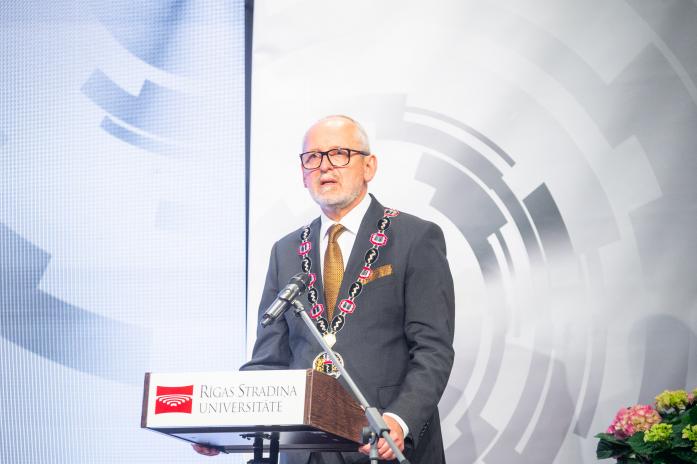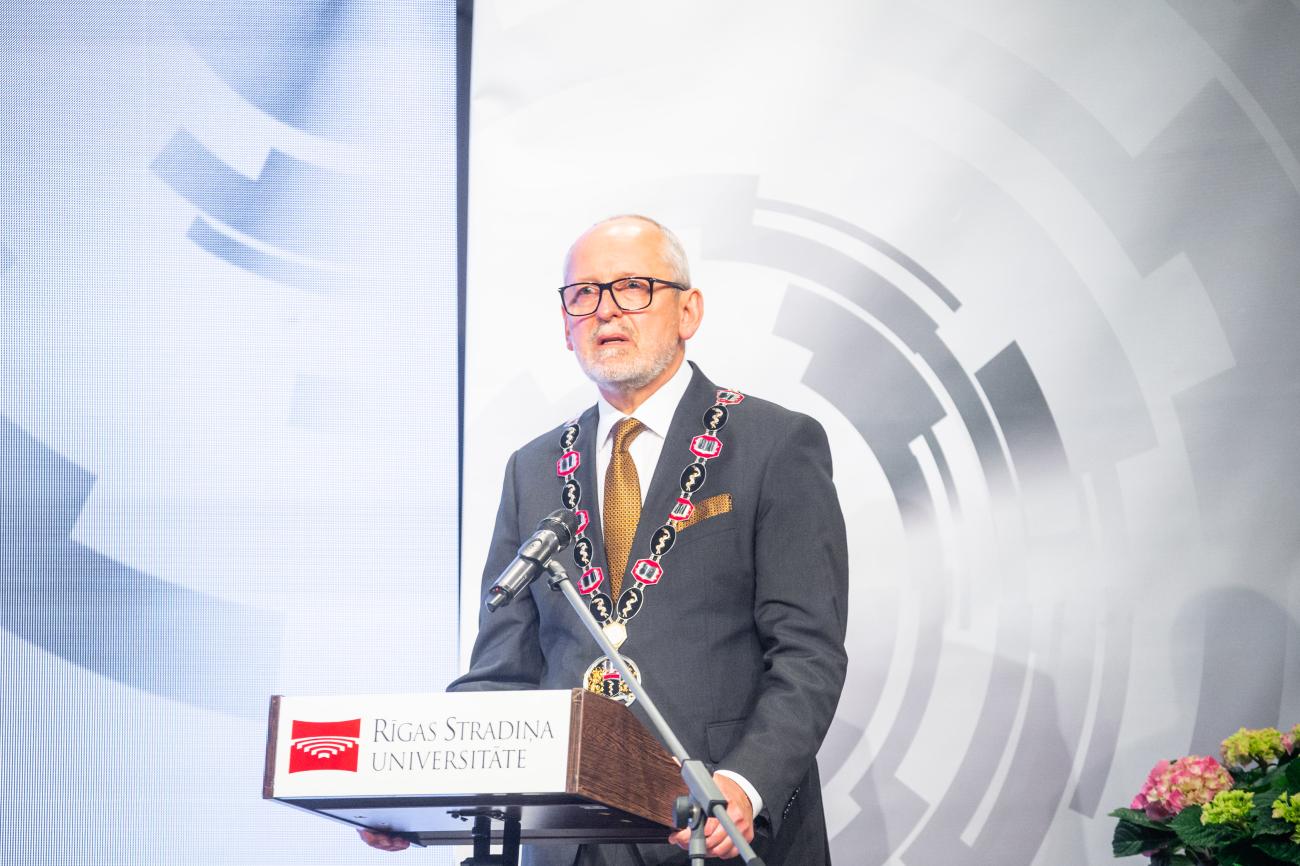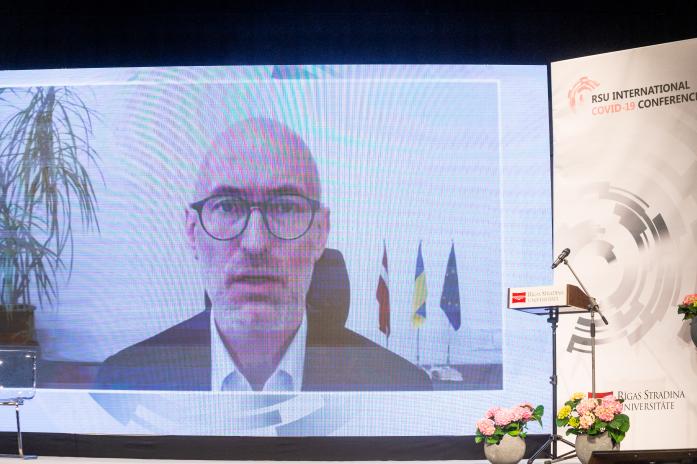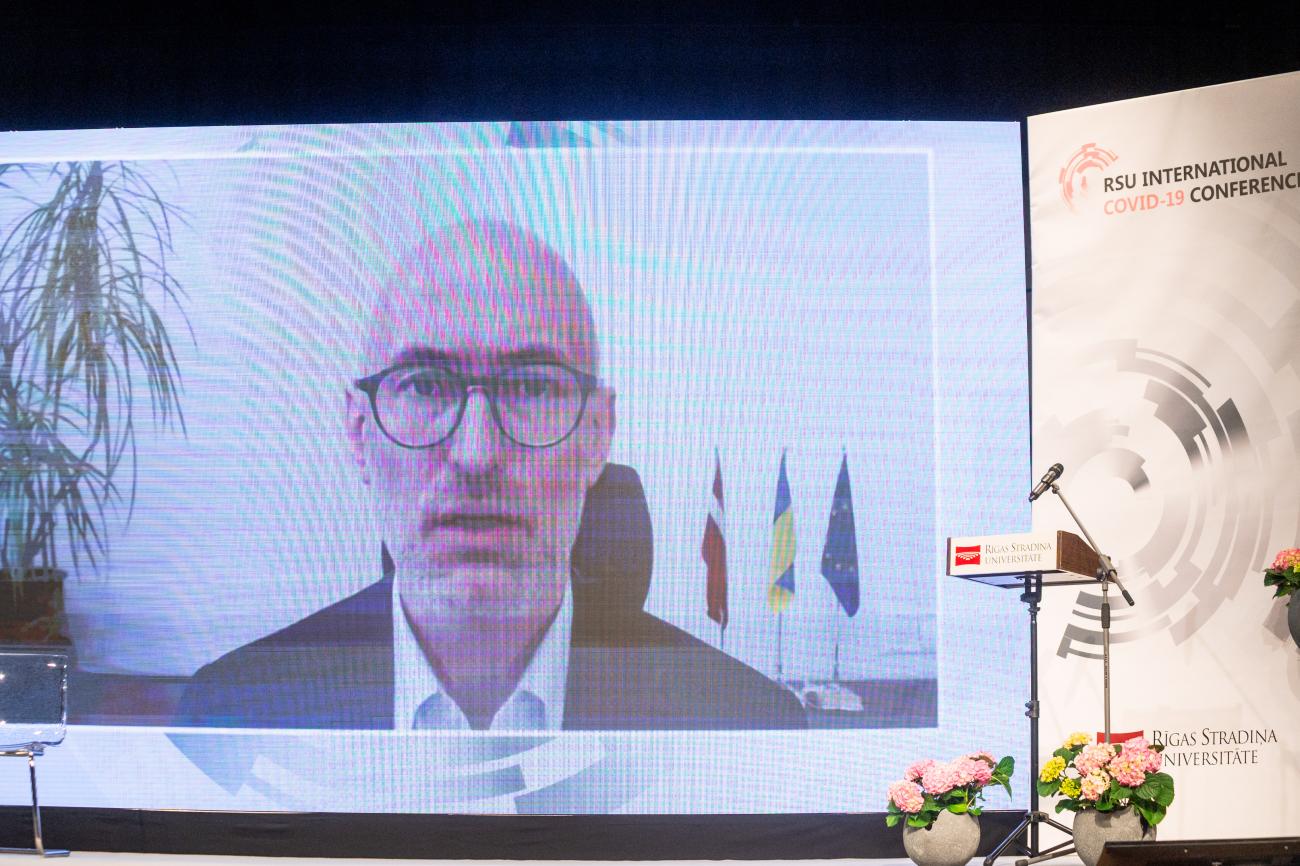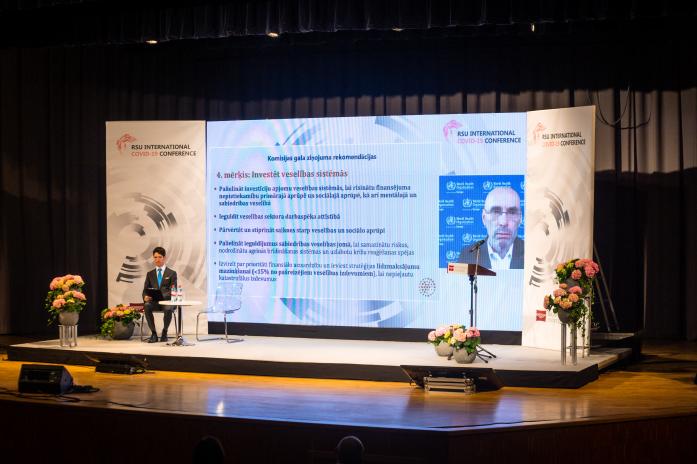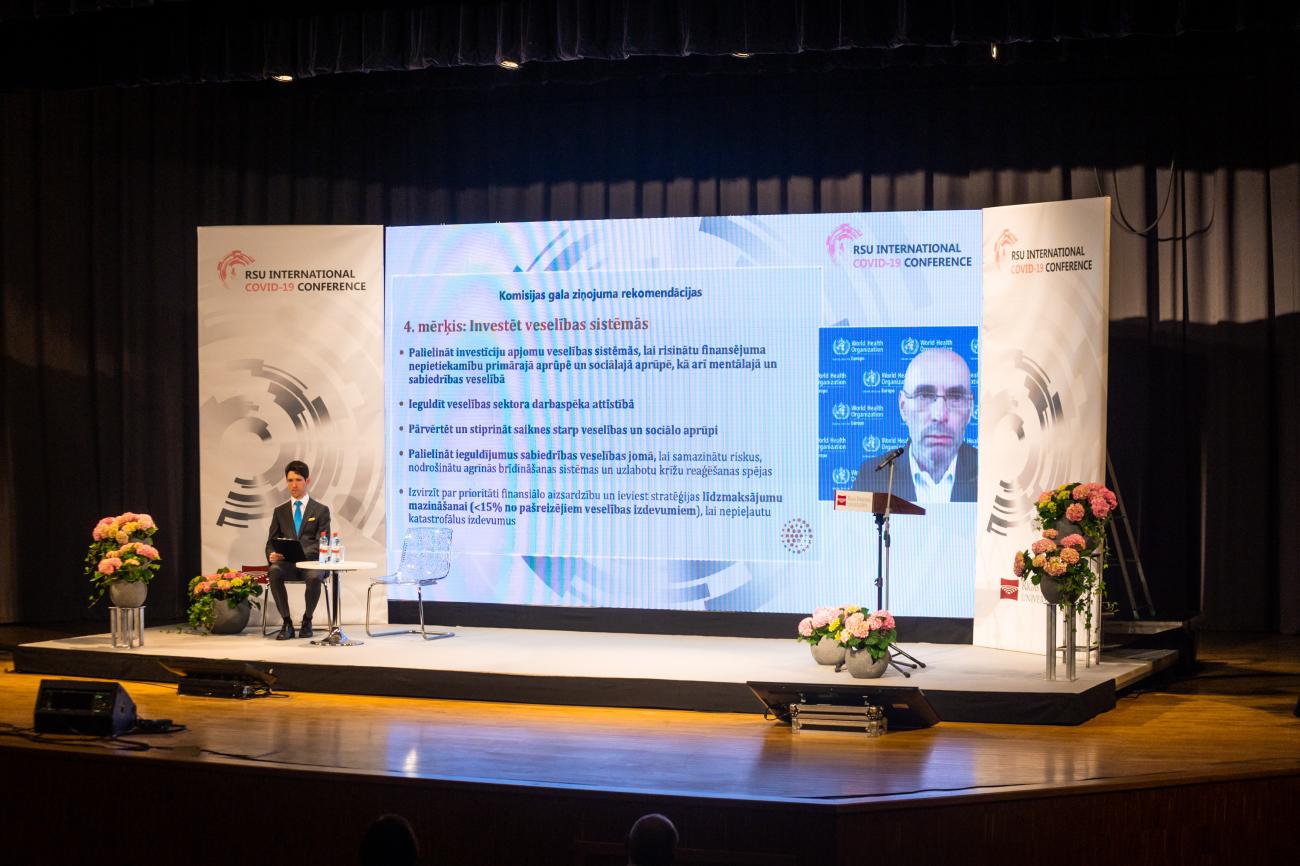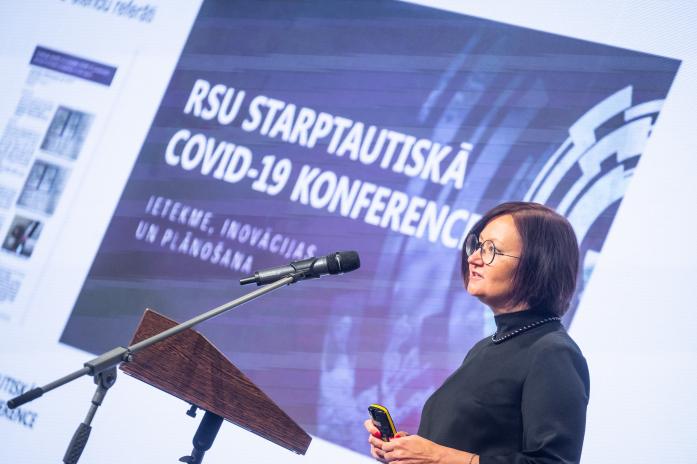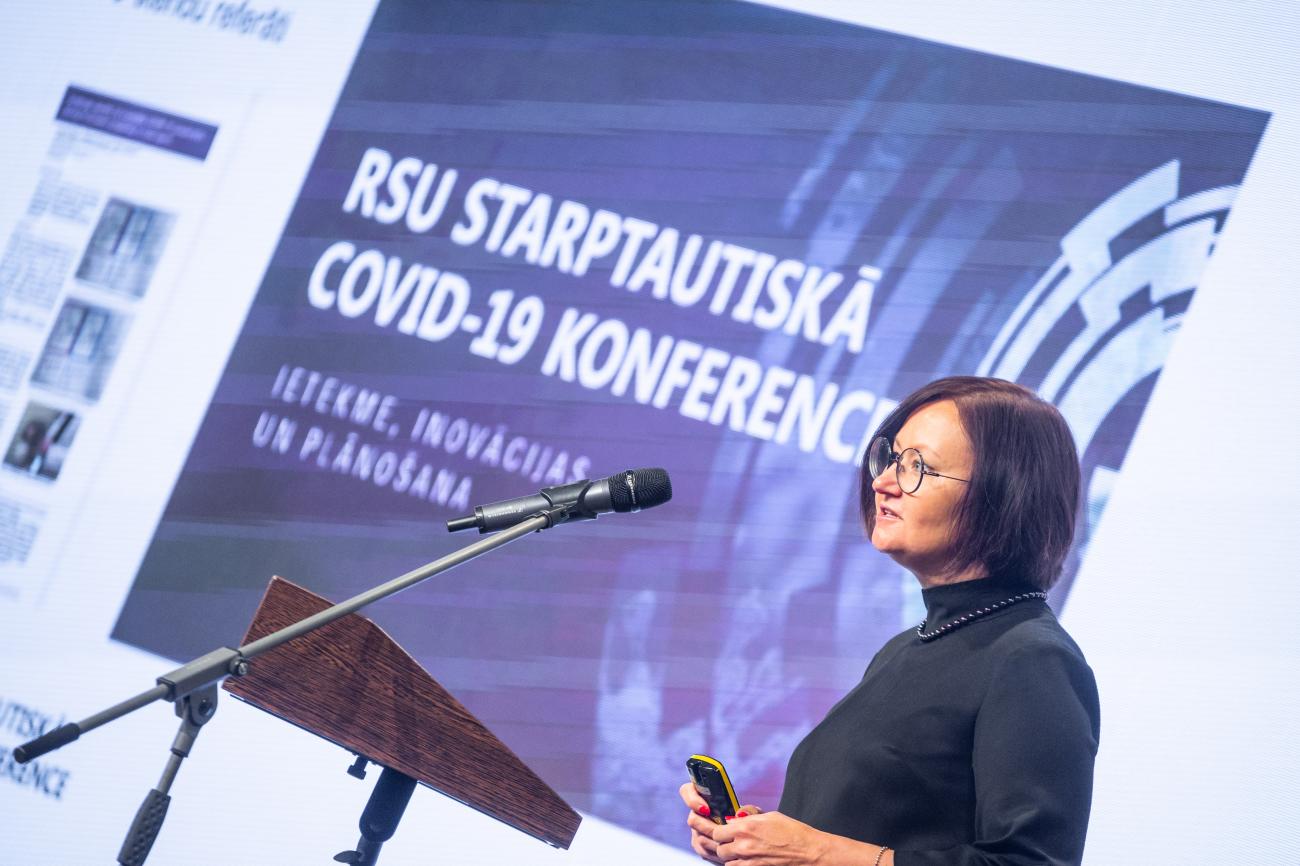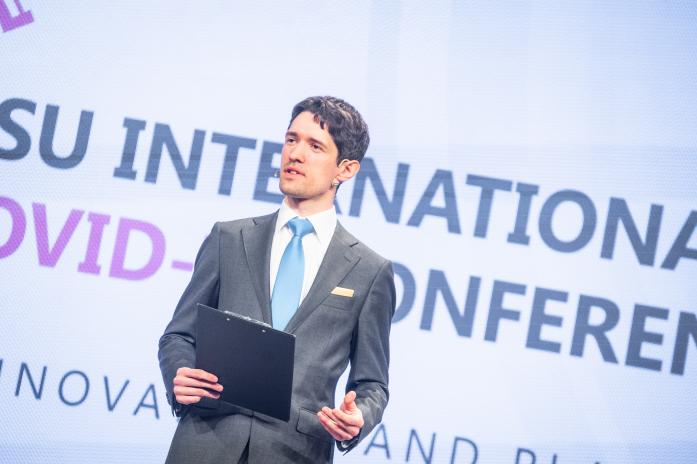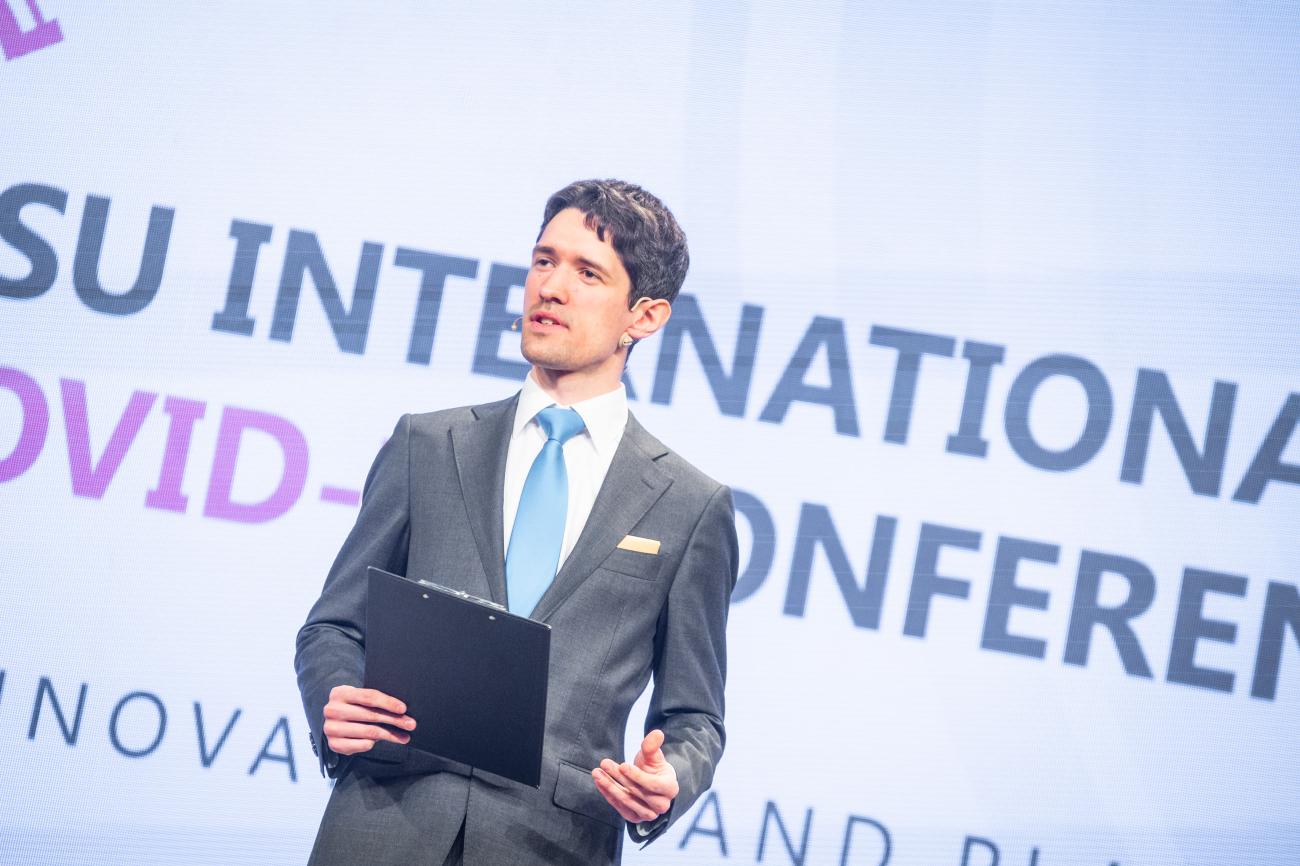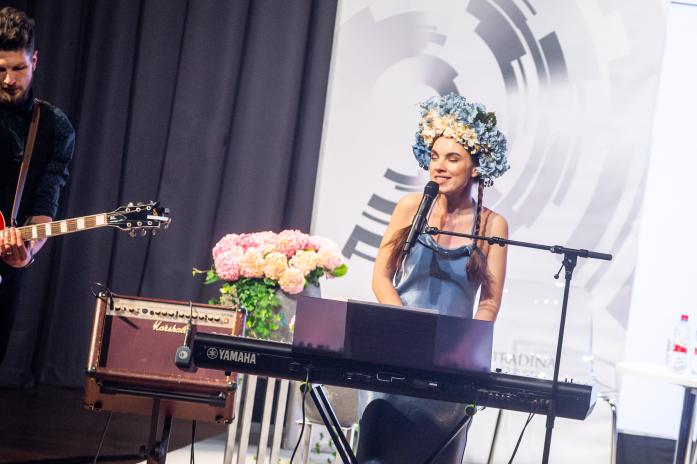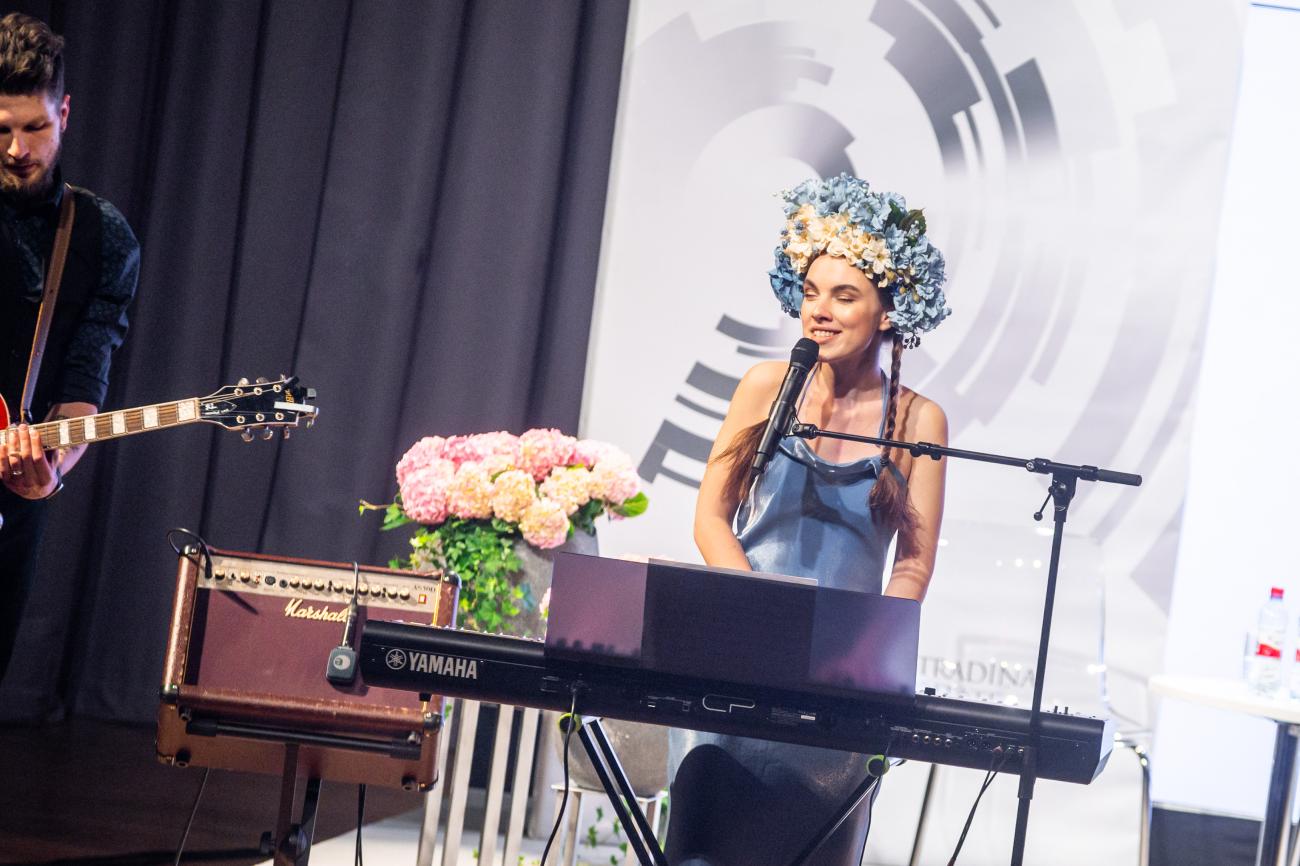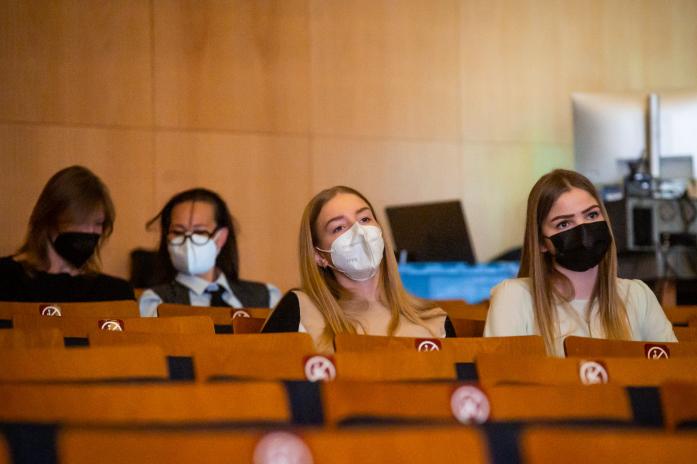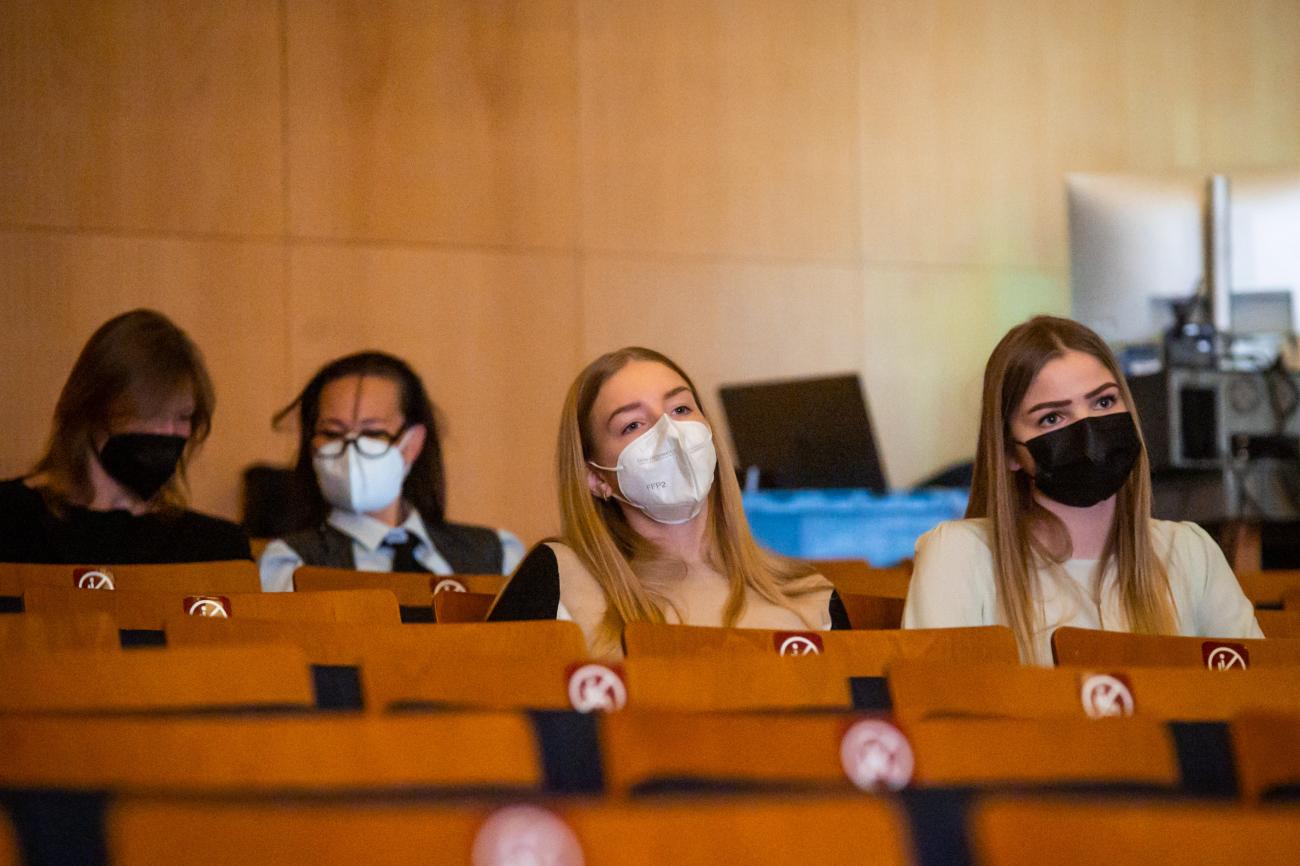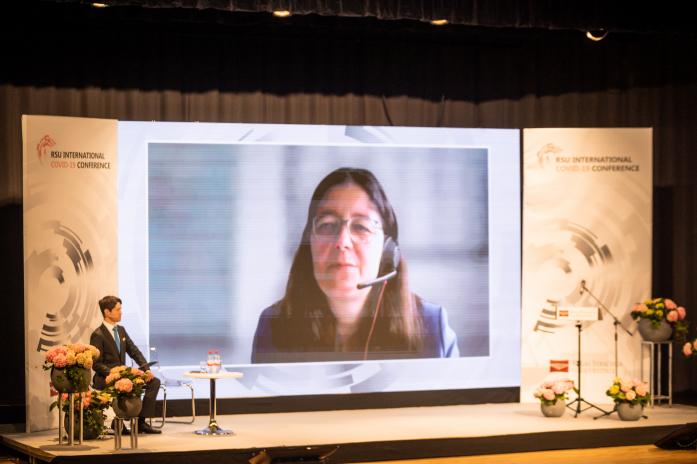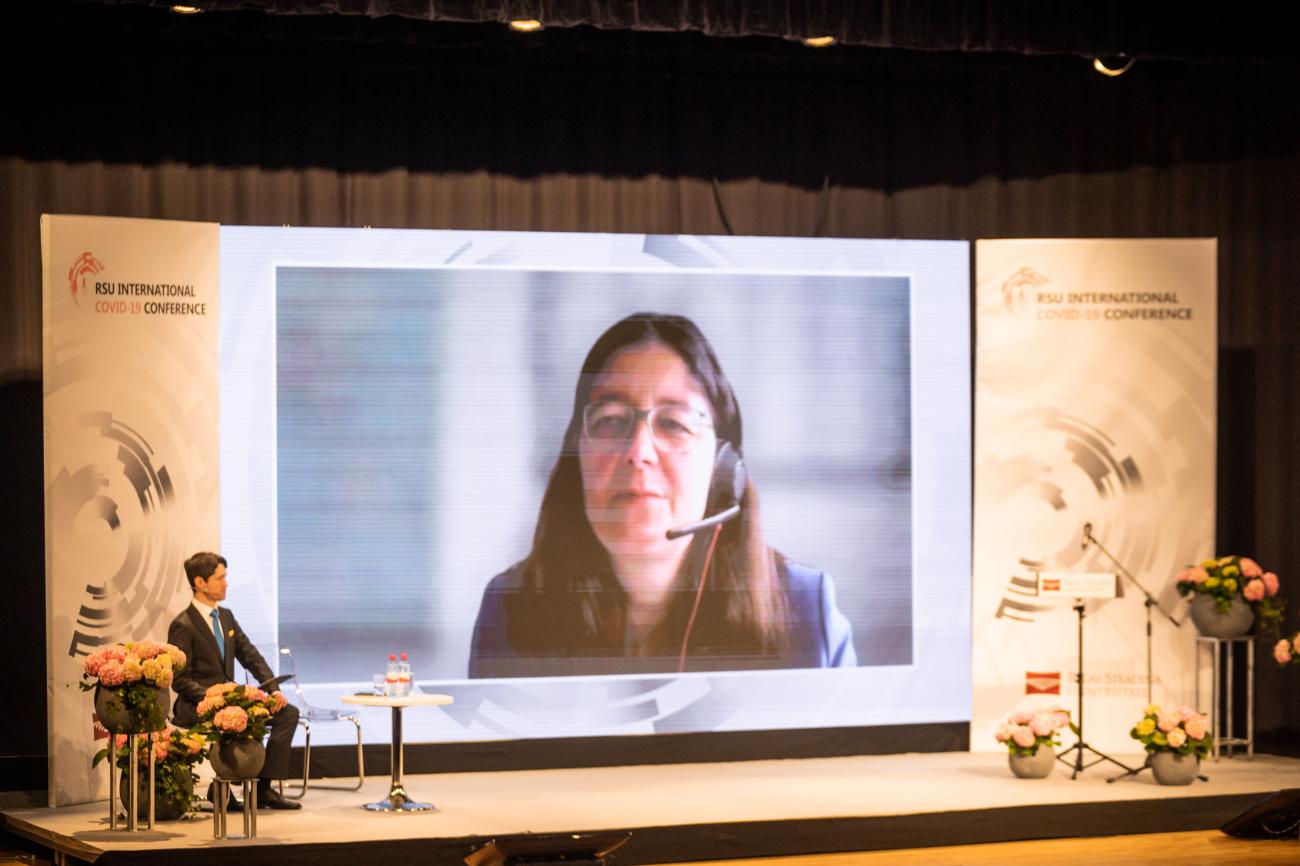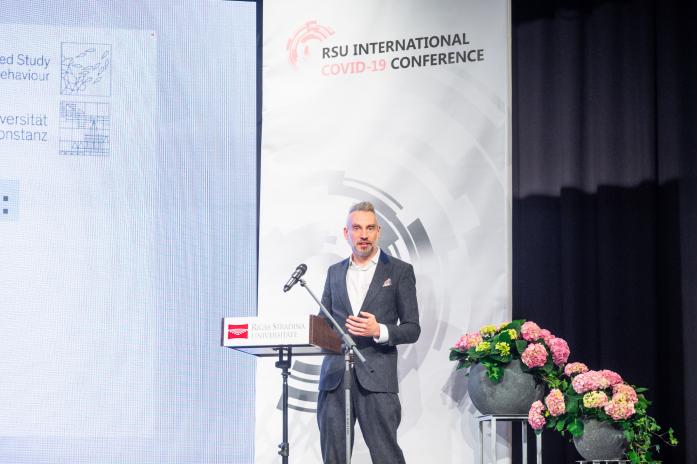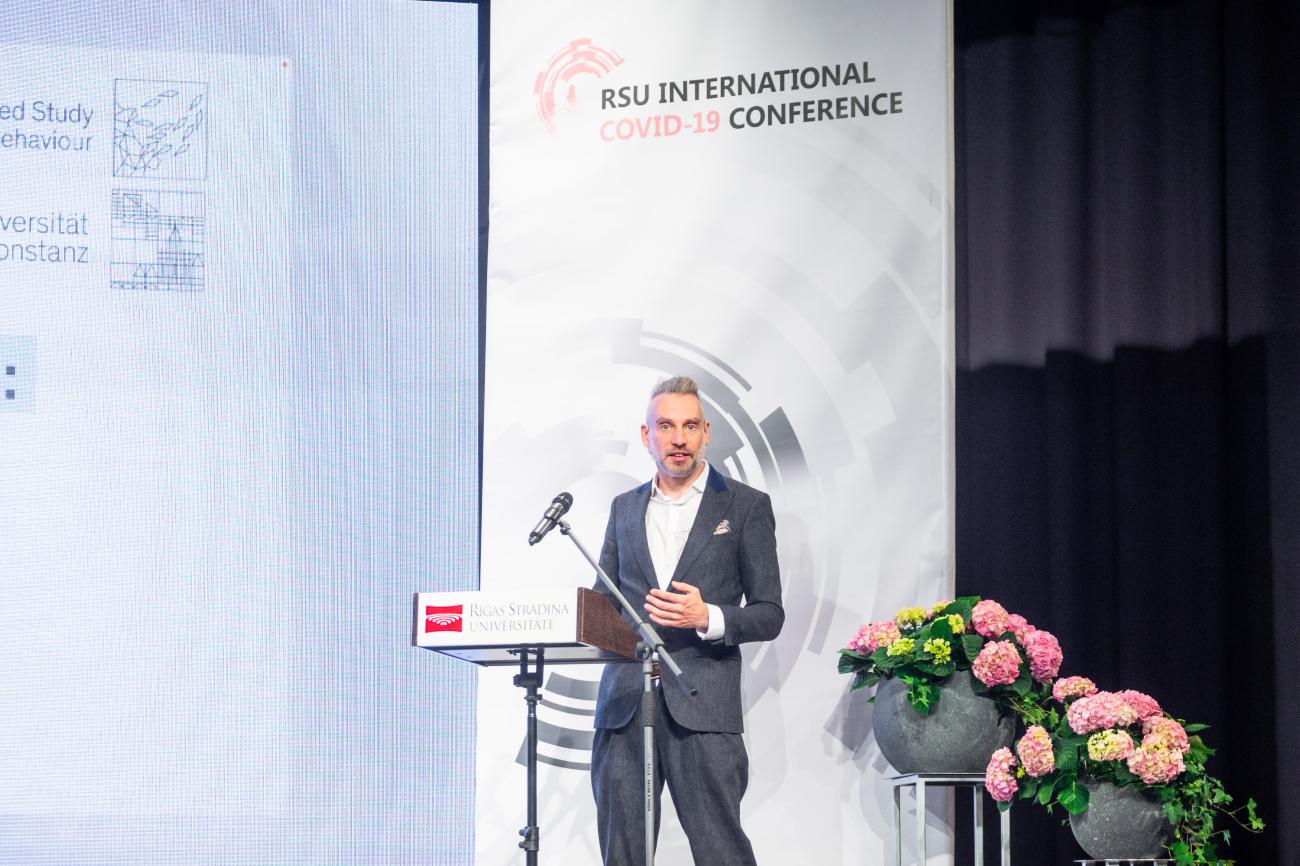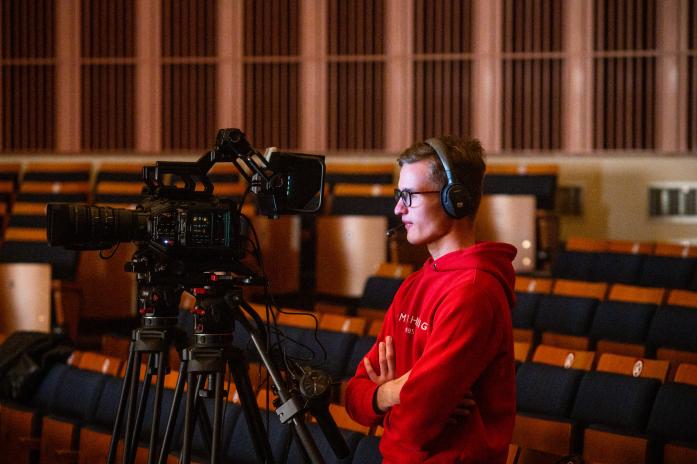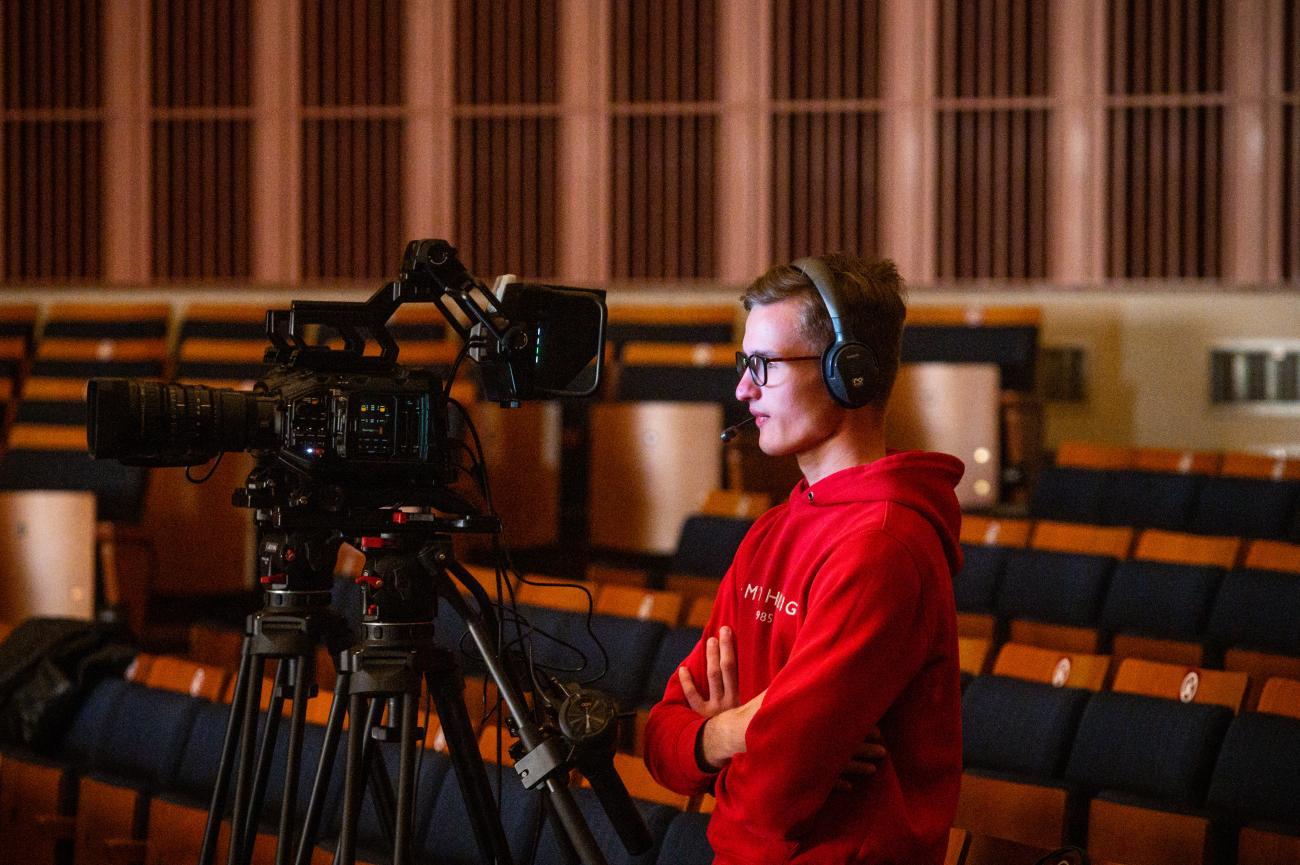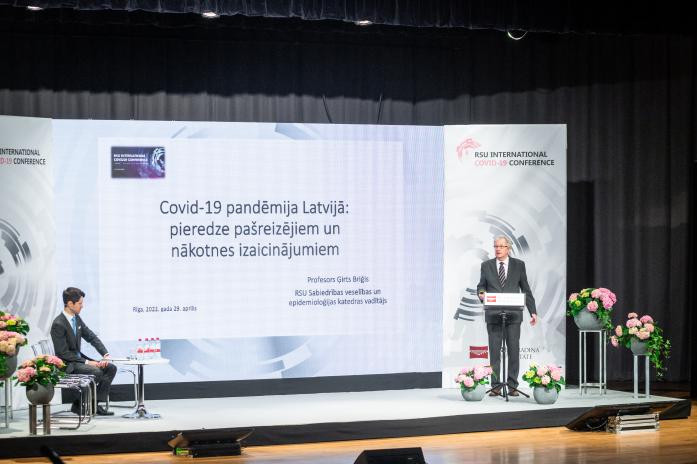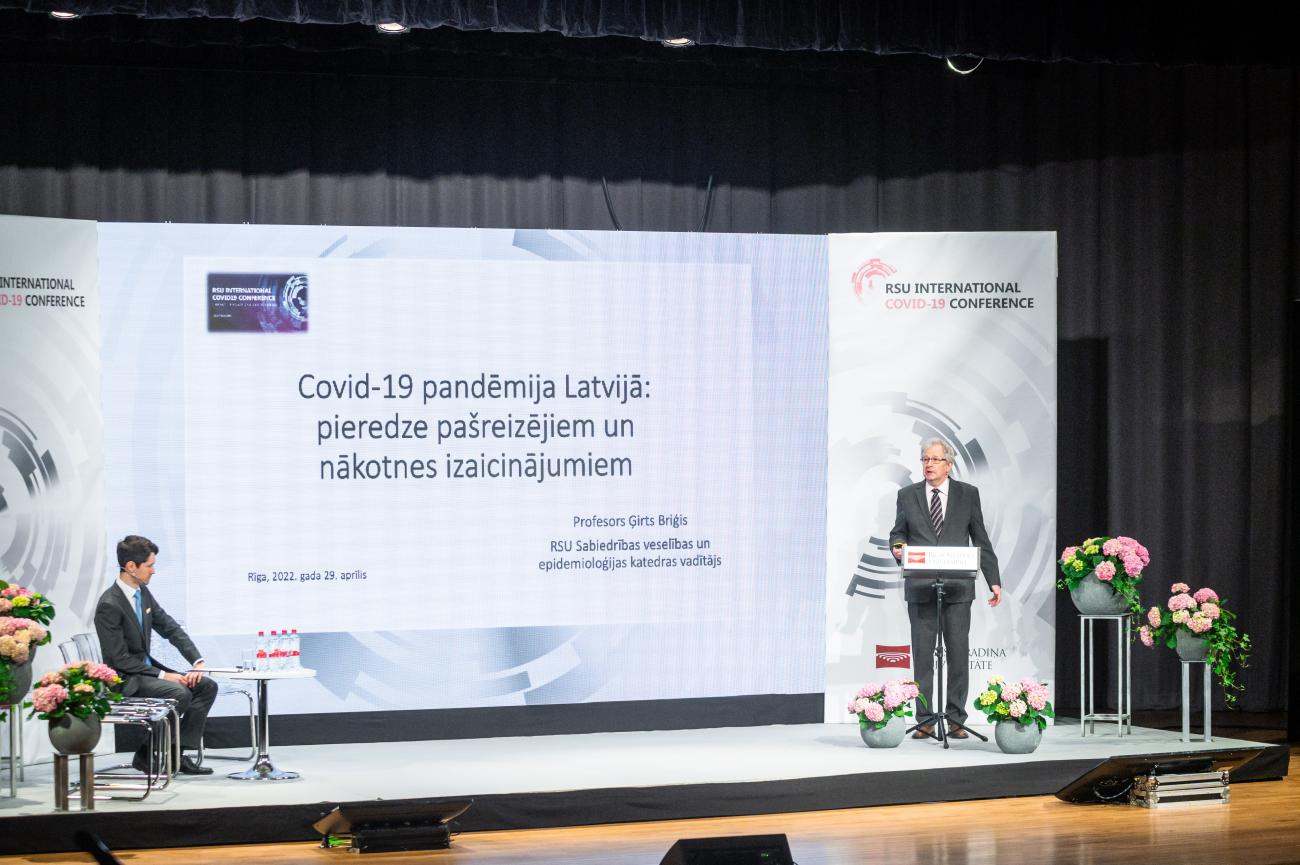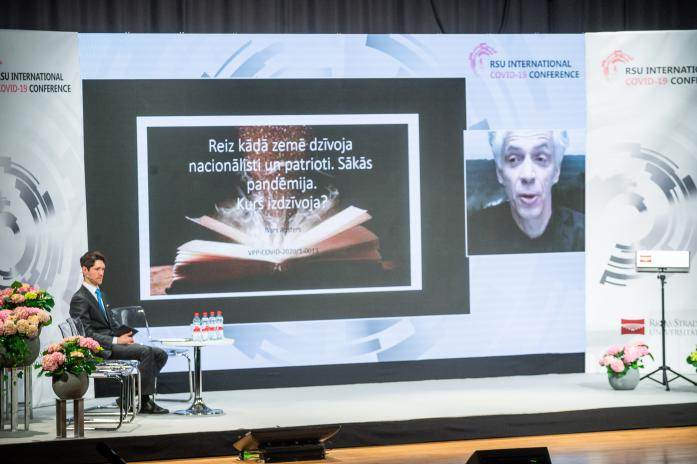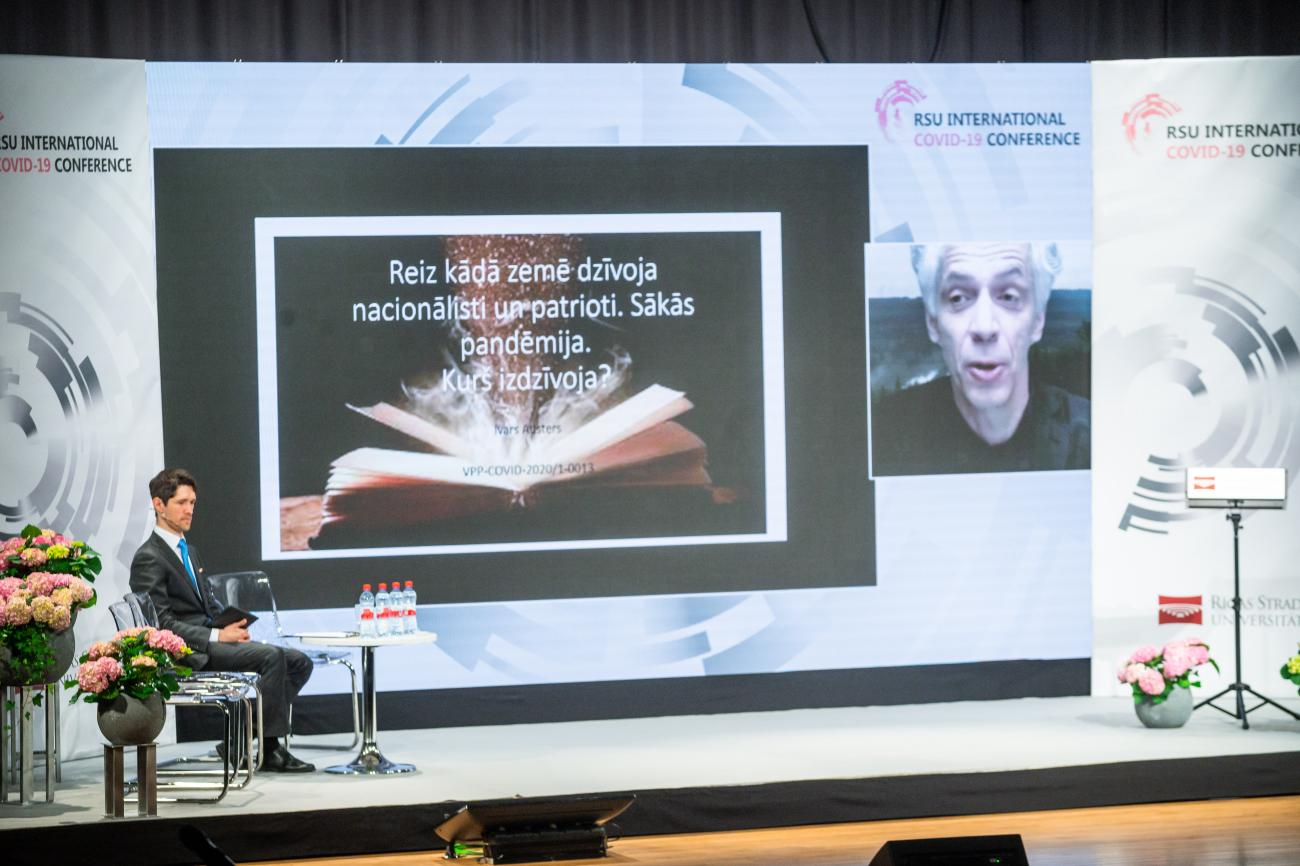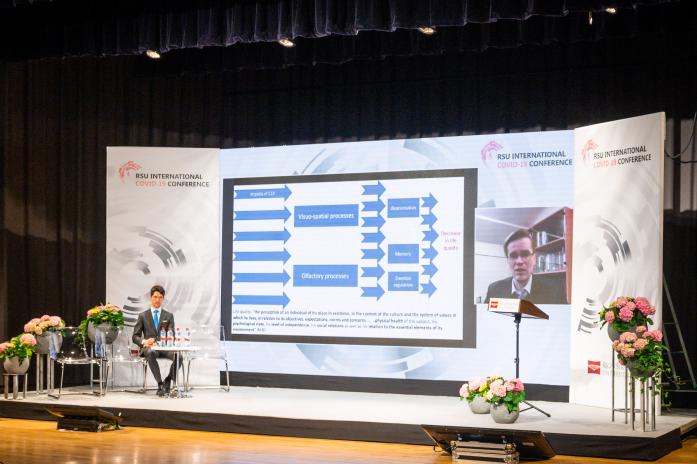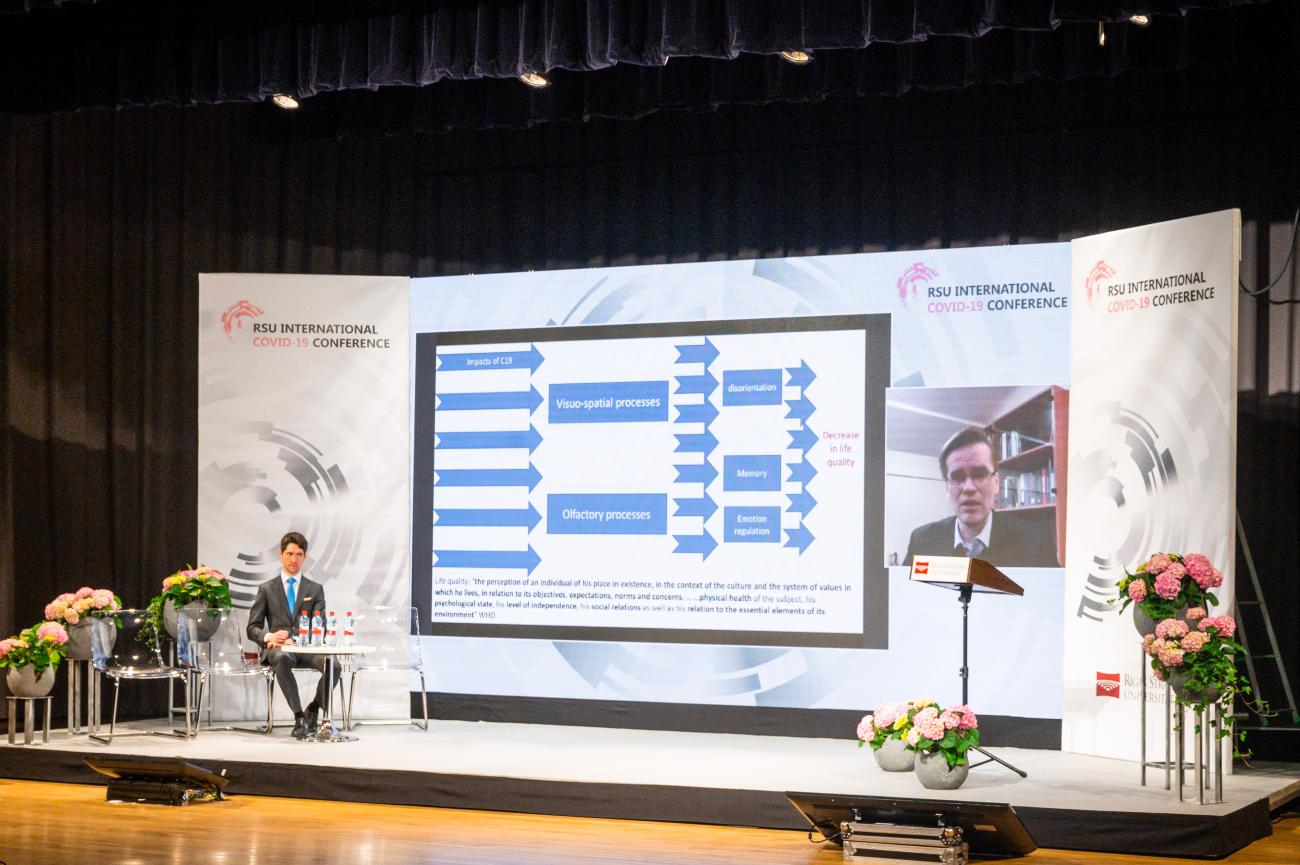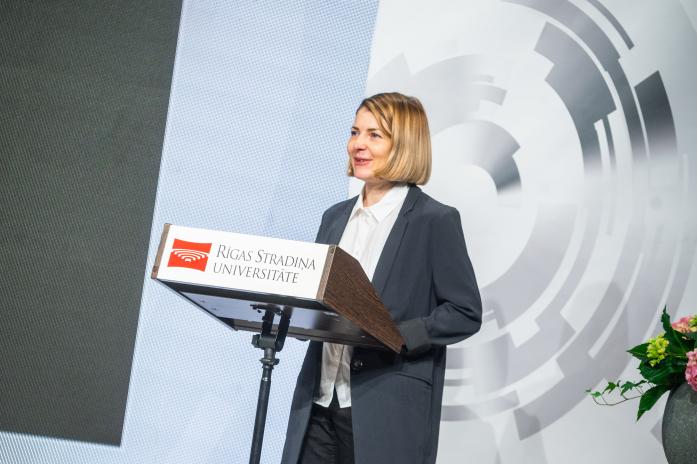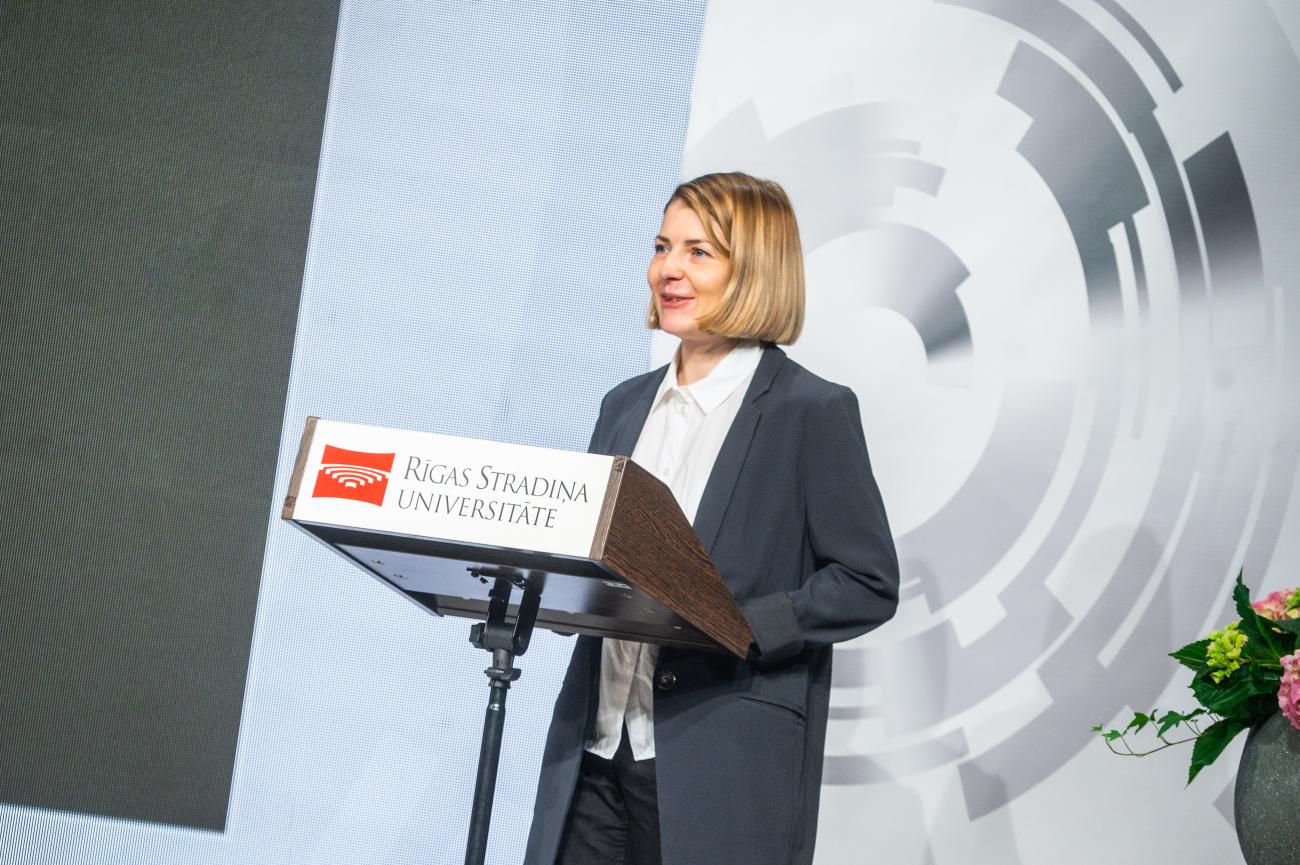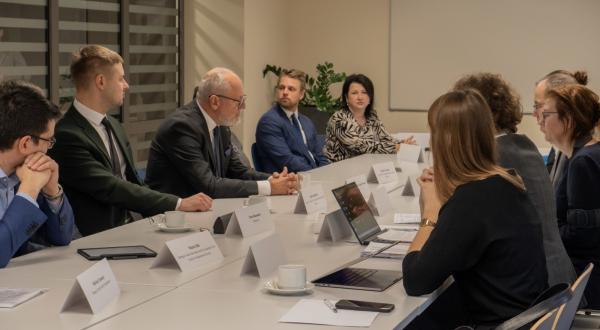RSU’s International COVID-19 Conference Brought Together Around 4,500 Participants From 40 Countries
Rīga Stradiņš University (RSU) hosted the international COVID-19 conference Impact, Innovation and Planning on 28-29 April. The conference gathered a wide range of experts - medical and healthcare professionals, specialists in communications, social anthropology, psychology, political science, law, and other fields. The participants gave an overview of the lessons they had learned from the pandemic and looked at possible future scenarios for COVID-19.
As the conference progressed, new participants continued to join both online and in person. Participant numbers reached its peak on the morning of Friday 29 April with a total of 4,500 delegates from 40 countries.
This conference was the largest event covering COVID-19 in the Baltics and was opened on Thursday 28 April by the President of the Conference, Professor Aigars Pētersons, RSU Rector, Daniels Pavļuts, Minister of Health, Uldis Mitenbergs, the Head of the World Health Organisation Country Office Latvia, and Agrita Kiopa, RSU Vice-Rector for Science. In their opening speeches, they emphasised the importance of bringing together knowledge on this public health crisis so that research and society would be able to face the challenges that may await in the autumn and beyond.
‘It is only natural for RSU to have hosted the most ambitious international scientific event in the region dedicated to COVID-19. We are a modern European university with a strong international focus, and we are a research university of national importance according to the new classification.
We have proved it with the rapid breakthrough in scientific indicators: the number of RSU scientific publications has increased by 50% in three years; we have administered three national research programmes to mitigate the effects of COVID-19 during the pandemic; a number of RSU experts have participated in working groups and given interviews to the media, helping the government and society in general to overcome the global pandemic both medically and socially,' emphasised Prof. Pētersons.
Keynote speakers Vivian Bremer, an epidemiologist at the Robert Koch Institute, who analysed the lessons that have been learned from COVID-19, and Prof. Wolfgang Gaissmaier, University of Konstanz, who assessed the psychology of collective behaviour during the pandemic, set the thematic tone of the conference.
The first day of the conference took place in two halls in seven parallel sessions, chaired by experts in their fields such as Prof. Ludmila Vīksna, Assoc. Prof. Jana Pavāre, Prof. Dace Rezeberga, Assoc. Prof. Dace Zavadska, Agrita Kiopa, and Guntis Bahs, Vice-Rector for Health Studies, Valdis Ģībietis, Assistant Head of the Scientific Committee for the conference, Assoc. Prof. Eva Strīķe, Prof. Aivars Lejnieks, Assoc. Prof. Ilze Konrāde, Prof. Oskars Kalējs, Prof. Elmārs Rancāns, and Vija Siliņa, the Head of the RSU Department of Family Medicine.
Clinical medicine covered Covid-19 risk factors, vaccines, virus transmission, clinical signs, diagnostic testing, imaging, immune responses, treatment and pharmaceutical prophylaxis, long covid, and other issues. Meanwhile, public health looked at future paradigms, the epidemiology of COVID-19, the impact on public health and strategies to contain the infection, high risk groups such as people with chronic conditions, pregnant women, children, adolescents and seniors, communication and infodemic, digitisation in the health sector, health care workers, mental health, modelling and bioinformatics, prevention, and more.
Today, when complex issues can no longer be addressed within a single discipline, it is essential to apply interdsciplinarity when discussing COVID-19 and this was the framework within which the events on Friday 29 April took place: four plenary sessions, comprising both presentations and discussions, involved both Latvian and international medical experts, medicine historians, experts in public health, social psychology, cognitive sciences, communication, political science, social anthropology, as well as representatives of public administration and industry. Among the experts who shared their views in these sessions were Prof. Ģirts Briģis, Prof. Ivars Austers, Prof. Jurģis Šķilters, Assoc. Prof. Ieva Lībiete, lecturer Vita Savicka, Prof. Sergejs Kruks, Asst. Prof. Alnis Stakle, Assoc. Prof. Ilva Skulte, Prof. Anda Rožukalne, Vineta Kleinberga, Assoc. Prof. Klāvs Sedlenieks, Assoc. Prof. Anda Ķīvīte-Urtāne, Felix Relitscek, a Cognitive Psychologist from the Max Planck Institute, Jussi Sane, a Health Security Expert, Prof. Anita Villeruša, Prof. Kārlis Ketners, Daiga Behmane, and Assoc. Prof. Inese Gobiņa. Alongside the presentations, the conference also featured a discussion on solutions to the crisis involving the public and the volunteer movement.
The medical, public health and social aspects of COVID-19 were also analysed with poster presentations, which can be viewed on the conference's virtual platform. The Scientific Committee accepted a total of 124 poster presentations.
